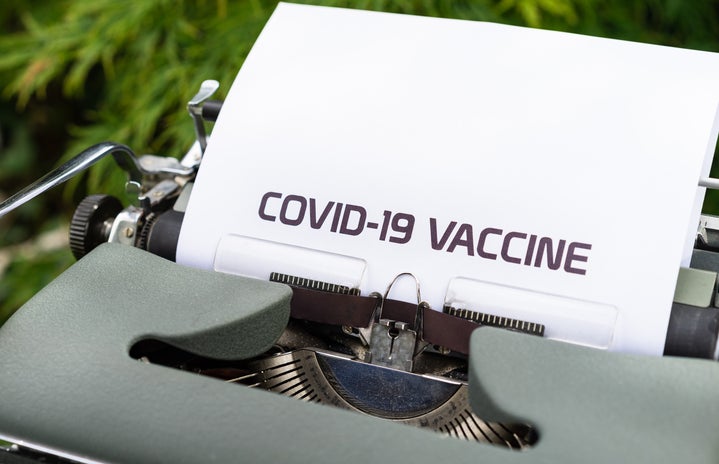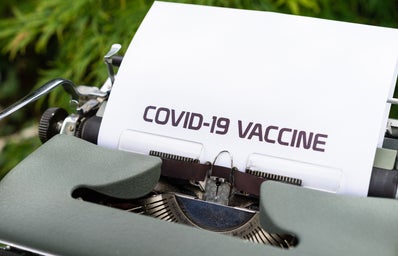In less than a year since the start of the coronavirus pandemic, scientists accomplished one of the greatest feats in modern times: the production of a safe, effective COVID-19 vaccine. Unfortunately, with this rapid development, there have been questions and concerns raised about the vaccine’s performance, ingredients, and side effects. However, I’m here to address the facts and share my experience!
The two main vaccines approved for use in the United States were developed by Pfizer-BioNTech and Moderna and rely on the same technology to function: mRNA. If you’re not a biology major, don’t panic yet—it’s pretty simple. Our bodies normally use mRNA as a “code” to create proteins that help keep us alive. The coronavirus functions the same way, but instead has the code to create a spike protein, which can help the virus attach to our cells if we become infected. So what does this have to do with the vaccine?
When a person receives the vaccine, they are injected with the same mRNA that codes for the coronavirus spike protein, along with a few other stabilizing ingredients. But this is perfectly safe! You cannot catch Covid from the vaccine. Instead, our cells use the mRNA instructions to create this protein so that our immune system recognizes there is something strange in our bodies. In turn, more cells will create antibodies to fight against the foreign object (the protein)! Some of these antibody-producing cells remain in your body as memory cells, which can now recognize the virus more quickly than before. Therefore, if you are ever infected with covid in the future, your immune system will already know how to protect itself from the virus, leading to a less severe form of illness. Pretty cool, right?
This vaccine’s record development can be credited to the dedicated work of scientists over the years. The process was not rushed—researchers have been studying mRNA vaccines for a long time in diseases such as the flu, rabies, and Zika. In addition, they were able to rapidly figure out the entire genetic sequence of SARS-CoV-2 (name for the virus that causes COVID-19 illness), which helped them pick out the exact code for the spike protein. Finally, these vaccines have been held to the same safety standards that all modern vaccines are held to in the United States.
I was lucky enough to recently receive both doses of the Pfizer vaccine! (Both Pfizer and Moderna require you to get two shots. Johnson & Johnson has also developed a single dose vaccine). After the first shot, I was a little tired and my arm was sore for a few days. Following the second shot, to be very honest, I developed a mild fever, some chills, and a headache the next day. However, please do not let this deter you from getting the vaccine. Symptoms are incredibly common (mine went away relatively quickly) and are simply a sign that the shot is doing its job. As of now, most states are only offering vaccines to healthcare/frontline workers, the elderly, and those with underlying conditions. Hopefully, they will soon start to increase the eligibility pool as more doses are provided from the federal government.
I hope that this article was able to address any questions that you may have about the vaccine. For more information, I encourage you to visit the CDC website for up-to-date reliable facts and statistics! Stay safe, keep wearing a mask, and let’s overcome this pandemic together :)
Want to see more HCLafayette? Be sure to like us on Facebook and follow us on Instagram, Twitter, and Pinterest!



